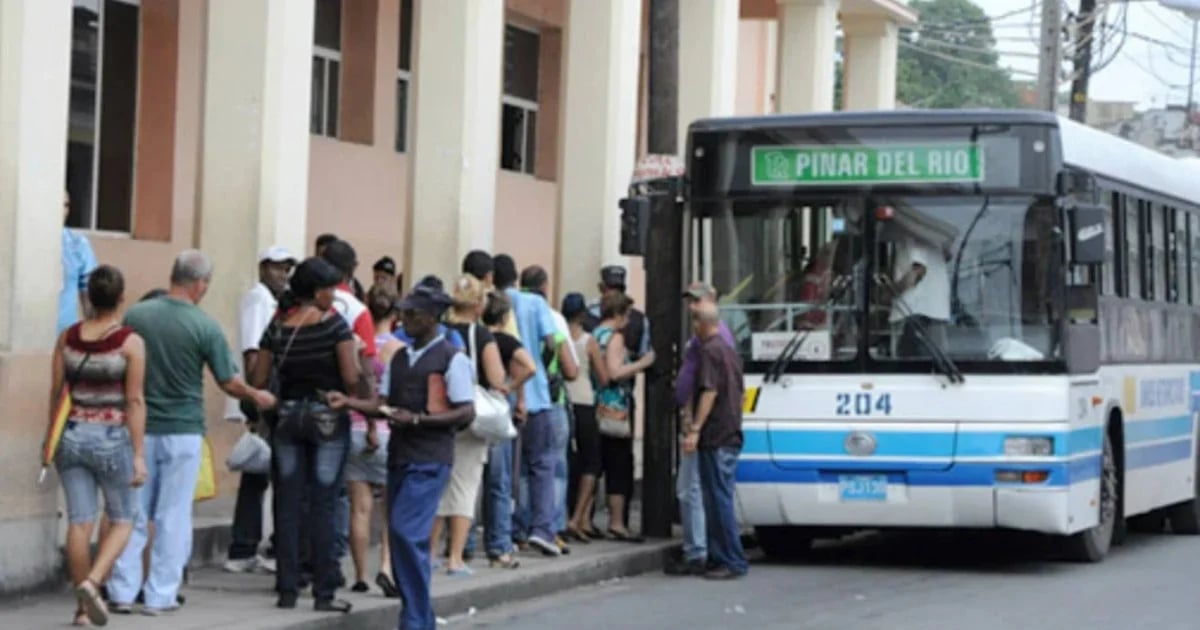
The Provincial Transportation Directorate in Pinar del Río reported that it will resume its services starting this Monday, after several days of not moving passengers due to insufficient fuel availability in the country.
Through the social network Facebook, the station Radio Guamá announced that the company resumed urban and suburban services in the capital city towards the different municipalities.
The institution announced on Thursday the 12th the adoption of several measures, among which were:
-Suspend public transportation in the capital city starting Saturday, September 14.
-Paralyze the inter-municipal routes, from the capital city to the rest of the territories, which will be reestablished when fuel availability allows.
-Suspend the train services covering the Pinar-Habana route.
Namely, the measures came to an end and everything returns to "normal," according to the post.
The transportation situation in Cuba is catastrophic. Sometimes it is due to a lack of fuel, and other times it is because the fleet of vehicles on the island is outdated, lacking spare parts and with years of use that exceed what the manufacturers intended.
The Cuban president Miguel Díaz-Canel has acknowledged the crisis in this sector, but justifying that it is a phenomenon linked to the global crisis.
During one of his YouTube programs 'Desde la Presidencia', which he himself hosts, the ruler stated that the sector is in the "worst moments in recent years."
By the end of April, 52 percent of the routes of provincial transportation companies were halted, indicated the Minister of Transportation (Mitrans), Eduardo Rodríguez Dávila, to the state-run newspaper Granma.
According to data from the official, previously 5.9 million passengers were transported daily, and now only 2.7 million; as a result, many people are forced to use private transportation, the prices of which are often unaffordable for most Cubans.
The crisis has reached such a point that the special municipality of Isla de la Juventud faces a serious risk of becoming isolated.
Rodríguez Dávila said on this topic that guaranteeing transportation to and from the Island has always been a priority, but the aging of the vessels and the lack of adequate maintenance are pushing the situation to the limit.
In line with this situation, the national coordinator of the Committees for the Defense of the Revolution (CDR), Gerardo Hernández Nordelo, faced criticism for boasting about the strength of the organization by managing to get a somewhat broken bus running in Villa Clara.
"Where there are cederistas, there are no ghosts! And even less in Camajuaní!" wrote Hernández on his social media, alongside a video showing him pushing a bus with a group of people.
Far from being amusing, the situation of pushing a bus reflects a problem that directly affects the daily lives of thousands of Cubans who rely on a collapsed transportation system.
What do you think?
COMMENTFiled under: